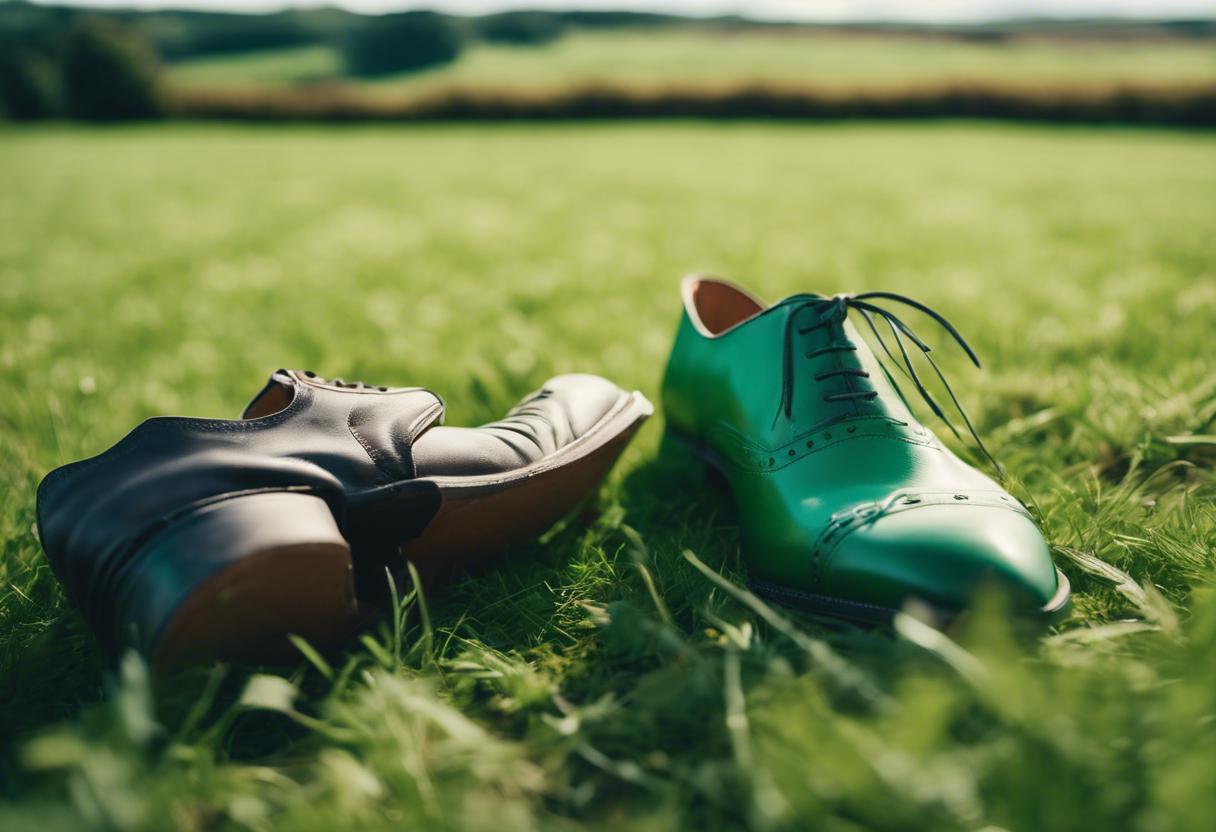An Irish company named Sampla, founded by Finbarr Power, is making strides in the sustainable footwear niche. Power, a product design enthusiast hailing from Waterford, established this company driven by his desire to launch an ethically fashioned and consciously designed unisex shoe. The approach confounds the current practices of reputed brands that seem to overlook the production of environment-friendly walking footwear. Sampla, meaning ‘example’ in Irish, was carefully chosen by Power as the brand name, asserting his intent to lead by example in the sustainable fashion industry.
Interestingly, Sampla uses an atypical but abundant resource – apple skin, for making their shoes. These apples, used in the juice industry, provide an excellent alternative to leather. Other sustainable materials like recycled EVA, a byproduct from the manufacturing of car seats in Europe, is used in the creation of Sampla soles. The footwear is then finished with organic cotton for the laces.
Describing Sampla, Power states that its heart lies in marrying creativity with craftsmanship. The shoes are the result of a conversation between designers, artisans, and the customer, with each aspect exhibiting their commitment to fashion that marries aesthetics with responsibility. The goal is to design not just footwear, but also a future that reflects their values and visions.
Enjoying growing popularity, Sampla’s sustainably designed footwear is now sold in 19 countries. The company is devoted to counteracting the trend of fast fashion by endorsing products with longevity that can be effortlessly repaired. This reduces waste and contributes to securing a sustainable future for the footwear business. Power’s vision is to bridge the gap between sustainability and style for consumers on a global scale.
Renowned for their handcrafted distinctive footwear, Tuttys of Naas prioritises durability and appeal in their designs. The proprietor, Michael Tutty, is proud of the popular shoe label’s stance against the prevalent trend of disposable footgear dominating the young consumers’ market. Instead, the brand advocates for long-lasting quality, especially in their walking shoes, which are designed to be repairable.
In creating their bespoke shoes and boots, the traditional manufacturing processes are strictly adhered to, enhancing their durability. The clients play a central role in the selection process – their preferences about style, leather type, heel and sole type, and finish are carefully considered and noted down.
Tuttys’ shoes and walking boots are known for their resilience and high wear resistance. The leather used is of high quality, more biodegradable and lacks plastic coatings and finishes. Being a byproduct of the beef industry, the leather adds a sustainable element to the product line without contributing to waste. In addition, the brand also offers vegan leather options, addressing a wide range of customer preferences.
The execution of the designs is carried out by nine dedicated employees, working collaboratively with the clients. The brand offers a unique variety of visually appealing two-tone brogues and a medical series of shoes suitable for distinctive foot features and non-standard fittings unavailable on the mainstream high street.
Tuttys has been standing strong since 1946, originally established by Michael’s grandfather. They have successfully nurtured a loyal customer base over many generations. Additionally, they invest in youth development by running their own apprenticeship programmes.
When hunting for sustainable walking shoes, you can use some guidelines to assist. Look out for features such as organic cotton used in uppers, recycled plastic elements, and ethically sourced leather. Fair labour practices and pay rates are also essential. Biodegradable, natural rubber outsoles born from replenishable resources make a more sustainable choice over petroleum rubber. Certification seals like those of the Global Organic Textile Standard (GOTS), Fair Trade, or proof of environment-friendly practices can also serve as reliable indicators.
Explore the main retail thoroughfares for an array of superior pedestrian footwear designed for extended wear. Tamaris offer delectable vegan options that are absent of any animal-derived materials, fitting for vegans or vegetarians. Timberland melds materials crafted from upcycled plastic bottles to create their top-tier hiking boots; they are not merely fashionable, but also sturdy, designed for lifelong use. In comparison, the evergreen boots from Dr Martens, resembling the eternal allure of Levi’s denim or Gap pullovers, bolster their shoe lifespan by ensuring durability and offer repair options as well. After all, the most eco-friendly footwear (or any objects) are those you already possess.
Therefore, research and consider your options before acquiring your subsequent pair of footwear and pay attention to their longevity and worth.

